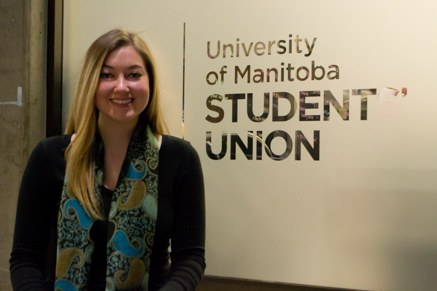The past few weeks have been hard on everyone at the University of Manitoba, but I think we can all agree that students have been hit the hardest. As a student senator, I have spent the past few weeks listening to students about how the strike affects them. No one situation is the same; most students have different opinions on how the semester should continue, and it appears unlikely that the semester will be salvaged in a way that benefits all students. Unfortunately, there is no solution that will work for everyone.
On Nov. 10, the U of M senate passed a contingency plan that laid out the academic schedule should the strike continue for three, four, or five weeks. Immediately after this was passed, a petition was released claiming that students’ rights were being stripped as a result of these proposed changes. I do not entirely disagree with this claim, because many will be negatively impacted by the changes. However, I want to ensure that students understand how this proposal came about, why we will not be able to find a fit-all solution, and how student representatives have fought tirelessly for changes that are fair to students.
The first question many ask is why students were not informed of these changes sooner. The senate agenda was released Nov. 9, one day before the meeting. Even those of us who have a seat on the senate executive committee (which allows us to view the proposed agenda sooner) were only given access to the proposal a few days in advance. This was not enough time for effective student consultation. Between the senate executive committee meeting and the general senate meeting, the other student representatives and I asked as many questions as possible. Here is a brief rundown of the issues we raised.
First, reading week. We stressed how many students rely on this break for mental health and to visit family, and it seems that our efforts paid off. On Nov. 21, an email was sent out from the U of M administration expressing their intention to keep reading week entirely. This is a win for most students, but we should also be concerned about the university extending the winter semester, as this will be harmful for many students. An extended semester is likely to affect graduation dates, co-op programs, employment, and travel. It may also prevent students from abroad from finishing the semester if they are to return home on a specific date. We need to ensure that these issues are not lost in the excitement over maintaining our reading week. There is still work to be done to ensure success for all students this year.
Next up are exams. We raised concerns about balancing coursework for regularly proceeding classes and final exams for the disrupted classes at the same time. How will mental health be affected by having to study for exams over Christmas break? Some have asked why we can’t just condense course material and shorten the semester. The problem with this is that many faculties are required to complete a certain number of weeks of coursework in order for students to obtain their degrees, meaning that shortening their semester is not possible. There is also the fact that most students don’t take classes solely for credit. For many, the content is more valuable than the credit itself.
On top of this, student senators raised questions regarding refunds and whether or not students should be reimbursed for delayed classes. We also suggested academic forgiveness, asking that voluntary withdrawals be absent from transcripts if students needed to drop courses as a result of the strike. Neither administration nor faculty could give a definitive answer to any of these questions as the document passed in senate is more of a guideline than a concrete schedule. Furthermore, most of the changes will not be implemented by a single body. Accommodations will largely be in the hands of our deans and professors now that classes have resumed.
I want to remind students that there are some benefits to these changes. While all of us would have preferred the original schedule, at least with these proposals we will still finish the school year in April. This is huge for many students who can’t afford to extend their semester, and who need to graduate by a certain date to start a job or apply to a grad school. We will also still get to go home for the holidays, and if our instructors are flexible, we may be given alternatives to final exams which would decrease stress levels over the holidays and allow us to have a legitimate break. Also keep in mind that students have a voice at the bargaining table when it comes to these changes. What we say matters, which is why it’s important to reach out to your student representatives to make sure that your voice is heard loud and clear.
This leads me to my final point. Now that the strike is over, the question is no longer about what side we were on, but rather how best to move forward as a student body. We must now look to the modified schedule posed by the administration, which carries significant changes. Our efforts have to be redirected toward encouraging all parties to consider how to best accommodate students. This is where my efforts have been solely focused during the past few weeks, and the same can be said for other student representatives.
To my fellow students: please do not feel as though nobody is on your side. It is the job of student representatives to listen to your concerns and relay them. Tell us if there is more that we can do, and tell us what the strike means for you. I promise that we will listen, and that we are on your side no matter what opinions you hold.
Lastly, to the deans, professors, and administrators: please do all that you can to accommodate your students. The schedule has been changed, and it will not benefit all students. Our success this year will depend on how willing both professors and the administration are to work with students now that the strike has ended. Grant us exam deferrals so we can go home for the holidays. Give us assignment extensions so that we do not have to write finals and complete a term paper simultaneously. Listen to each individual student and how they have been impacted, and find a way to make it right for them. All parties involved in this strike have said that students are their top priority. If this is true, now that a fair deal for UMFA has been reached, ensure that a fair deal for students follows.





